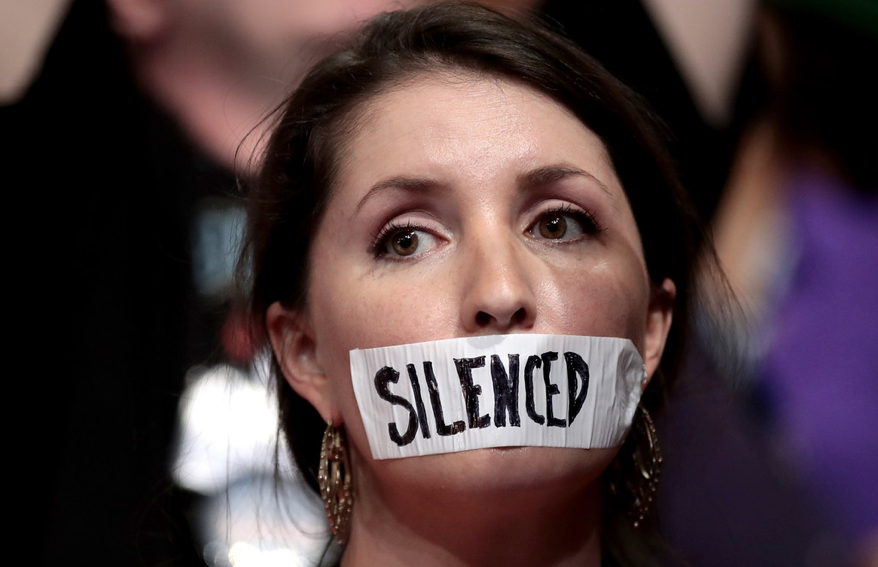CommentsGELFAND’S WORLD--It's the ultimate irony -- watching professional climate-change deniers quoting the predictions of modern science.
Donald Trump told the people of the Atlantic coast to take Hurricane Florence seriously, referring to its size and even its moisture carrying capacity. It's too bad that the press didn't get to remind him about the source of these facts. Besides the ultimate surprise -- that Trump actually told the truth about something -- the irony stems from the fact that the size, track, and magnitude of Hurricane Florence are part of a larger science which includes the inescapable conclusion that global warming is occurring and that it is caused by humans burning oil and coal.
Of course, it takes both intellect and intellectual honesty to make the connection properly. Atmospheric science, oceanography, and space technology interconnect through physics and chemistry to provide a modern view of the overall warming of the earth's oceans and atmosphere. The comprehensive collection of fact and theory allows the definitive finding that global warming is happening. These disciplines also allow some bit of long range climate modeling, and of a slightly more controversial nature, the growing view that we are already suffering from the effects of the warming.
The fact that science is consistent across its subdisciplines, and that strong evidence points to the dangers presented by global warming, seems to be lost on the Oklahoma congressional delegation and the Trump administration. Yet the president is willing to make use of selected scientific predictions when it serves his interests.
To add irony to the irony, it's of note that the regions of the country that are full of conservative deniers of global warming are the places which are even now suffering the worst damage. At the current rate of at least one (and sometimes more) massively damaging hurricanes hitting the North American land mass each year, the Gulf Coast, mid-Atlantic coast, and Florida are destined to become less and less valuable pieces of real estate. If you can expect that sometime in the next 20 years a magnitude 4 or 5 hurricane is going to roll over a particular piece of property, the selling price is going to be correspondingly lower. It's nice to live at the beach, but it's less nice to know that at some point, your house will be under water. Literally.
There is also the corollary that human suffering and loss of life will be statistically higher. We can't predict exactly where and when there will be Katrina-like events, but we can predict that when they happen, they will be more dangerous than what historical trends used to be.
These somewhat tendentious predictions are based on what we are getting both from seasoned scientists and from television weather forecasters: Hurricanes gain their strength from elevated water temperatures. A quick check of historical averages for the South Carolina coast reveals that the current water temperature is four or five degrees higher than it would have been according to that historical average.
Another way to put it is that the people are being played for suckers by their political leaders. It may have been of economic benefit to the giant oil companies to put a lid on discussion of global warming, but the near-term result is already here -- and it is a disaster for the people of the Gulf Coast and the mid-Atlantic.
At what point will the increasing level of death and destruction lead the people in these conservative regions to recognize that at least in this one thing, they have been played for fools?
***
Reminder: Your chance to talk back to City Hall
The neighborhood council congress is set for Saturday, September 22. There are lots of interesting sessions planned, ranging from how to run a meeting to how to deal with difficult people.
We also have a reform track, meaning a series of 3 sessions dealing with how we might have done things better and how we might want to change them. How could we add real power to the neighborhood councils? I've published a couple of articles suggesting things like veto power over commission appointments. Bring your own ideas. We also have a session dedicated to the question of reform of the government itself, including the idea that members of the City Council have too much unchecked power. In the opening round, we have a session dedicated to discussing the proposals for changes to the neighborhood council system brought by City Councilman David Ryu.
Those who have a particular interest in these subjects should please contact me at the email address provided below.
PS: It is important to register online because it comes with free parking at City Hall and meals.
(Bob Gelfand writes on science, culture, and politics for CityWatch. He can be reached at [email protected])
-cw
















